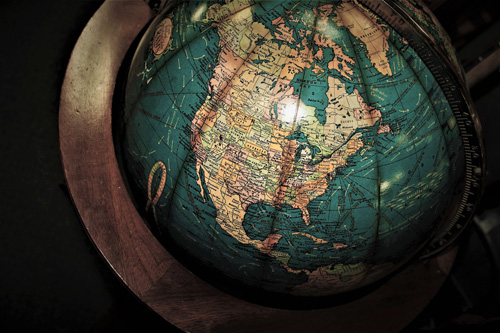The term “‘sphere of influence’ … entered the vocabulary of diplomacy in the early 19th century,” according to Harvard’s Graham Allison, “but the concept is as old as international relations itself.” By way of illustration, Allison invokes the image of a “shadow” cast by a state that has become predominant after “the equilibrium of forces” between it and another state has shifted greatly enough. “Traditionally,” he goes on, “great powers have demanded a degree of deference from lesser powers on their borders and in adjacent seas, and they have expected other great powers to respect that fact.” While this definition does not seem to be contested by experts, the right of countries to claim spheres of influence certainly is.
In the opening argument of the debate below, Paul Saunders, a senior fellow in U.S. foreign policy at the Center for the National Interest, takes what might be called a “realist” approach: While he does not believe that the U.S. should publicly endorse Russian or other spheres of influence, he does call on U.S. policy elites to stop denying, in America’s internal policy debates, that “Russia and other states have national interests and that, while we may not agree with how those states define their interests,” they must be included “among other considerations in formulating U.S. policy.” With America’s relative power on the global stage diminishing over the past 20 years as China and, to a lesser extent, Russia have risen, Saunders concludes that “the United States will have to work much harder to have its way [in the world] and will not be able to expend such effort everywhere.
Understanding this, and undertaking the tough job of setting priorities, is the best way to maximize America’s future power.” Responding to this argument is Steven Pifer, a senior fellow at the Brookings Institution, who believes that the U.S. should not “accept the legitimacy” of Moscow’s efforts “to establish a sphere of influence in its neighborhood.” While acknowledging that “Russia has interests and will pursue those interests,” Pifer does not always see Moscow’s interests in the same way other analysts do; he rejects the view, for example, that Russian military intervention in Ukraine, where Pifer served as U.S. ambassador in 1998-2000, had anything to do with the prospect that NATO—which Moscow views as a hostile military bloc—would be coming closer to Russian borders. More generally, Pifer wants to see a world in which small nations have the means for self-determination without being in a great power’s shadow: “[A]ccepting Moscow’s assertion of a sphere of influence means denying that countries such as Ukraine have interests of their own or a right to determine their own domestic and foreign policy courses,” he writes, adding: “Do we really want to accept a world in which the views and desires of little or smaller countries are sacrificed to the preferences, however legitimate or illegitimate, of their larger, more powerful neighbors?”
Understanding this, and undertaking the tough job of setting priorities, is the best way to maximize America’s future power.” Responding to this argument is Steven Pifer, a senior fellow at the Brookings Institution, who believes that the U.S. should not “accept the legitimacy” of Moscow’s efforts “to establish a sphere of influence in its neighborhood.” While acknowledging that “Russia has interests and will pursue those interests,” Pifer does not always see Moscow’s interests in the same way other analysts do; he rejects the view, for example, that Russian military intervention in Ukraine, where Pifer served as U.S. ambassador in 1998-2000, had anything to do with the prospect that NATO—which Moscow views as a hostile military bloc—would be coming closer to Russian borders. More generally, Pifer wants to see a world in which small nations have the means for self-determination without being in a great power’s shadow: “[A]ccepting Moscow’s assertion of a sphere of influence means denying that countries such as Ukraine have interests of their own or a right to determine their own domestic and foreign policy courses,” he writes, adding: “Do we really want to accept a world in which the views and desires of little or smaller countries are sacrificed to the preferences, however legitimate or illegitimate, of their larger, more powerful neighbors?”
As competition among great powers intensifies, so, too, could debates about spheres of influence. Some U.S. policymakers—including, most recently, John Bolton (when he was national security advisor), Vice President Mike Pence and Sen. Lyndsey Graham—have implied or said outright that the United States has its own sphere of influence that should be respected. Political analyst Ted Galen Carpenter of the Cato Institute has gone as far as to argue that, in order to avoid “needless conflict,” Washington should seek “a sensible agreement” with Moscow, in which it “would be willing to respect a Russian sphere of influence” in Eastern Europe and, in exchange, “should insist that Russia respect the Monroe Doctrine,” which claims U.S. predominance in the western hemisphere. Even if that were to happen, however, Allison suggests that the past two decades’ shifts in global power have created “facts on the ground” that cannot be undone and for many “nations and individuals around the world who have found shelter under the American security umbrella … the consequences will be tragic.” The only option available to Washington, he argues, is to “focus above all on its alliances and partnerships.”.

No comments:
Post a Comment